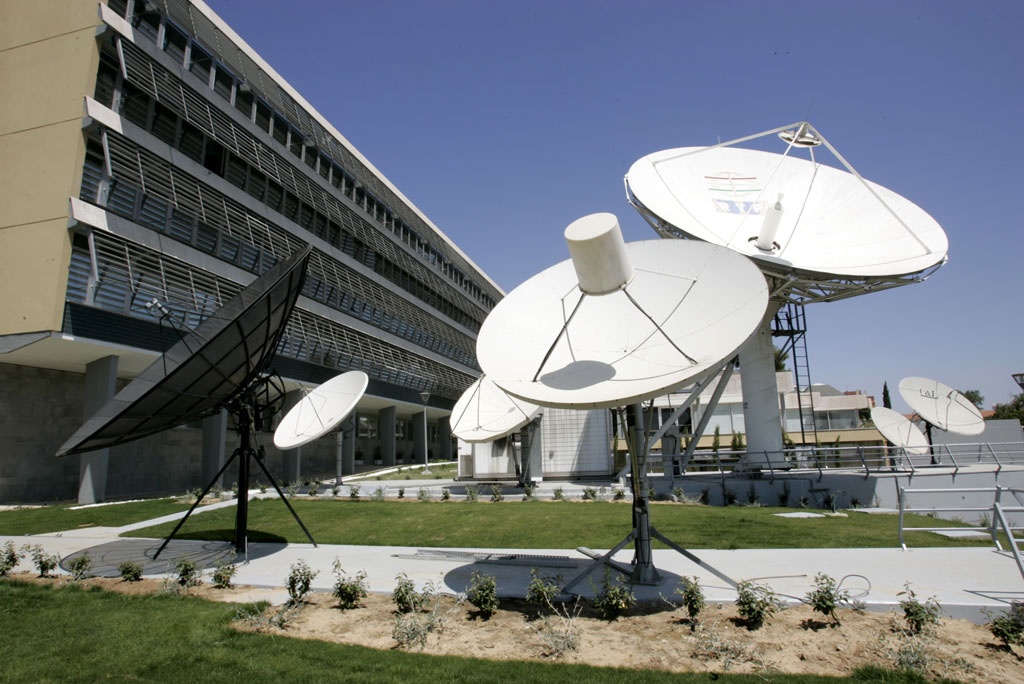This post is part of our special coverage Europe in Crisis.
Soon after the proposal to privatise Portuguese Public Television (RTP) was announced by government privatisation advisor António Borges in an interview [pt] with TVI on 23 August, 2012, the first criticisms began to appear.
On Twitter, actor Nuno Lopes was one of the first to voice [pt] his outrage:
Portugal vai ser o único país da Europa sem um serviço público de rádio e televisão. Hoje acordei com vergonha de ser Português.
A Public Petition [pt] has been created, as well as a page on the social network Facebook (which had 22,393 “likes” at the time of this translation being published), against the end to RTP2 [pt], the second public television channel, which offers more diverse programming and, according to Borges, will cease to exist.
An event [pt] has also been created calling to keep televisions tuned to the second public station on 6 September to make it the audience leader on this day (and, at the time of this translation being published, was counting on around 16,615 intending to participate).
Although the plan presented by António Borges was not an official government announcement, a protest [pt] was organised against the end to RTP2 and handing over the remaining public television channels to private operators, and was held on 2 September.
!["Culture is priceless. We all have the right to it and the responsibility to maintain and pass it on. We can't let RTP2 be shut down!" Image shared on the Facebook page “Contra o Fim da RTP2” [Against the End to RTP2]. "Culture is priceless. We all have the right to it and the responsibility to maintain and pass it on. We can't let RTP2 be shut down!" Image shared on the Facebook page “Contra o Fim da RTP2” [Against the End to RTP2].](https://pt.globalvoicesonline.org/wp-content/uploads/2012/08/556388_342284462525501_1684841168_n1.jpg)
“Culture is priceless. We all have the right to it and the responsibility to maintain and pass it on. We can't let RTP2 be shut down!” Image shared on the Facebook page “Contra o Fim da RTP2” [Against the End to RTP2].
O serviço público não pode ser exercido por empresas cujo capital seja total ou maioritariamente privado, mesmo que através de uma concessão. No seu artigo 38.º, nºs 5 e 6, a Constituição prevê a existência de um sector público da comunicação social. Acresce que no artigo 82º, n.º 2 se estipula que “o sector público é constituído pelos meios de produção cujas propriedade e gestão pertencem ao Estado ou a outras entidades públicas”, o que torna inconstitucional a sua concessão a entidades privadas.”

Antennas at RTP headquarters, Avenida Marechal Gomes da Costa, Lisbon. Photo from rtppt on Flickr (CC BY-NC-SA 2.0)
In the blogosphere, the most active voice against privatising RTP has been that of researcher and President of the Media and Journalism Research Centre (CIMJ) Estrela Serrano who, on the blog Vai e Vem, has presented several arguments that must be taken into account. In the first article, published on 25 August, the researcher presented some interesting data [pt] on “what RTP2 represents in terms of diversity and complementarity”, indicating, for example, that its operational costs per capita are the second lowest in Europe.
In another article, published on 26 August, Estrela Serrano pointed out that “the public service has regulations” and presented [pt] some of their cornerstones:
a) ser detido por uma empresa de capitais públicos; b) ser independente do poder político e do poder económico; c) ser total ou parcialmente financiado pelos cidadãos aos quais se destina, mediante o pagamento de uma taxa (garantia dessa independência); d) ser dotado de um órgão onde têm assento representantes dos cidadãos escolhidos pelos diversos sectores da sociedade – Assembleia ou Conselho – com funções de acompanhamento, supervisão, emissão de pareceres sobre planos de actividades e orçamentos, contratos de concessão e relatórios de actividades e contas.
With António Borges’ announcement, the Declaration Against the Privatisation of RTP seems to have gained force, which is led by, among others, director António Pedro Vasconcelos, President of the Portuguese Writers’ Association José Jorge Letria and Bishop Januário Torgal Ferreira, and was published in the newspaper Expresso on 7 July, and reproduced [pt] in full by Joana Lopes on the blog Entre as Brumas da Memória:
os signatários apelam ao bom senso dos partidos do governo e da oposição para que travem uma medida que carece de clareza e de racionalidade e que não pode em caso nenhum ser enquadrada no plano de privatizações, até porque a sua dimensão financeira seria despicienda e totalmente desproporcionada relativamente aos efeitos brutais sobre a indústria dos média e a qualidade e a isenção da informação, da formação e do entretenimento a que os portugueses têm direito.
On her personal Facebook page, Maria João Fialho Gouveia, daughter of two historical RTP figures — Maria Helena Varela Santos, who opened the first regular RTP broadcast on 7 March, 1957, and José Fialho Gouveia, who, on 25 April, 1974, read the statement from the Armed Forces Movement that proclaimed the country's liberation from dictatorship — summarises [pt] the sentiments of those opposed to privatising RTP:
De ora em diante a televisão em Portugal viverá somente para o lucro, seguindo uma espécie de doutrina do neoliberalismo mediático, reflectindo a ideologia política que hoje rege os nossos destinos. Vence o capital; perde qualidade; perde o país.
From now on, television in Portugal will only exist for profit, following a type of neo-liberalist media doctrine, reflecting the political ideology that now controls our fate. Capital wins; quality loses; the country loses.
Not yet completed nor even having an officially established plan, the process of privatising RTP appears to be a very complicated task for the Ministry under Miguel Relvas, who has been significantly weakened in public opinion due to recent controversies over how he managed to get his bachelor's degree in just one year, as well as his alleged involvement in threatening a journalist from the newspaper Público.
This post is part of our special coverage Europe in Crisis.








4 comments
Portugal needs much more privatisations, not less. Portugal electricity is still dominated by EDP, customers still have little choice in Portugal which just re-enforces the control of old monopolies, and charging higher prices.